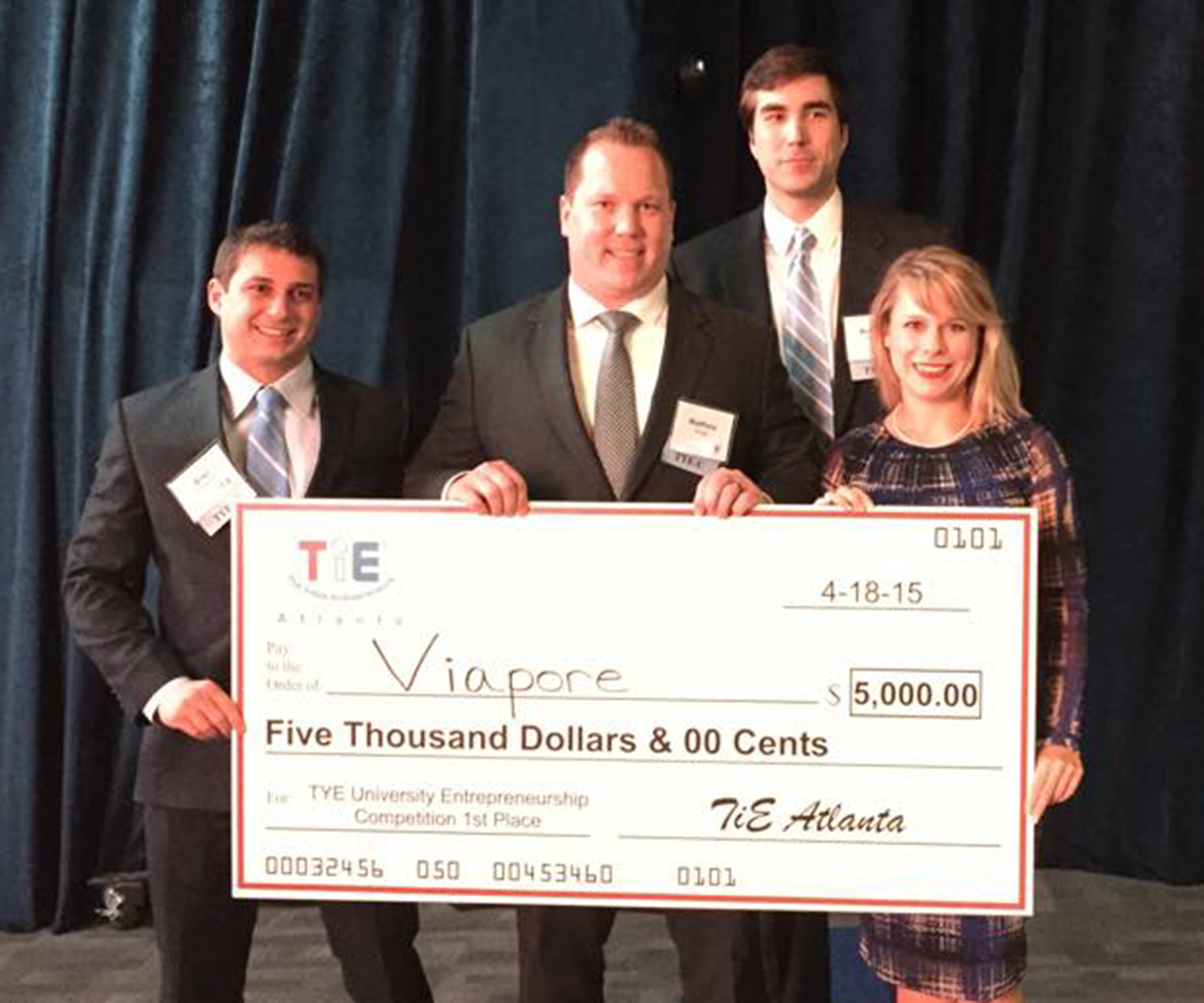ACTSI-supported TI:GER Team Wins 2015 Atlanta Young Entrepreneurs University Competition

Georgia Institute of Technology’s Technological Innovation: Generating Economic Results (TI:GER) program assembles students into competitive teams of two MBAs and two law students, with a PhD student in order to address the issues that arise in technology commercialization, like patent drafting and law and maximizing commercial potential.
Team Viapore, an Atlanta Clinical & Translational Science Institute (ACTSI)-supported TI:GER team consisting of Emory Law student Brad Schewizer, Georgia Tech PhD candidate in mechanical engineering Brennan Torstick, Georgia Tech MBA students Anna Hewitt and Matthew Kroge, and Georgia Tech PhD candidate in material science and engineering Nathan Evans, recently won first place and $5,000 at the The Indus Entrepreneurs (TiE) Atlanta Young Entrepreneurs University Competition with their medical device for spinal implants.
Viapore was founded to address unmet clinical needs in spinal fusion surgeries to alleviate back pain, addressing the critical problem of poor bone integration with polyaryletherketone (PEEK) biomaterial implants. In the more than 400,000 surgeries conducted a year, nearly 10% require revision surgery. Evans invented the surface-porous technology, which aims to reduce this need for revision by providing improved patient outcomes at an overall lower cost. By modifying the material in orthopedic implants to make them stronger and have better image compatibility, the new device aids in recovery by allowing bone to grow through the implant itself.
Viapore hopes to use a small group of surgeons to implant the first-in-man devices and market its effectiveness after patent protection and FDA approval. They plan to expand this innovative technology to other uses in internal development and licensing opportunities. Read More
The ACTSI is a city-wide partnership between Emory, Morehouse School of Medicine, and Georgia Tech and is one of a national consortium striving to improve the way biomedical research is conducted across the country. The consortium, funded through the National Center for Advancing Translational Sciences one of the National Institutes of Health’s Clinical and Translational Science Awards (CTSA), shares a common vision to translate laboratory discoveries into treatments for patients, engage communities in clinical research efforts, and train the next generation of clinical investigators.